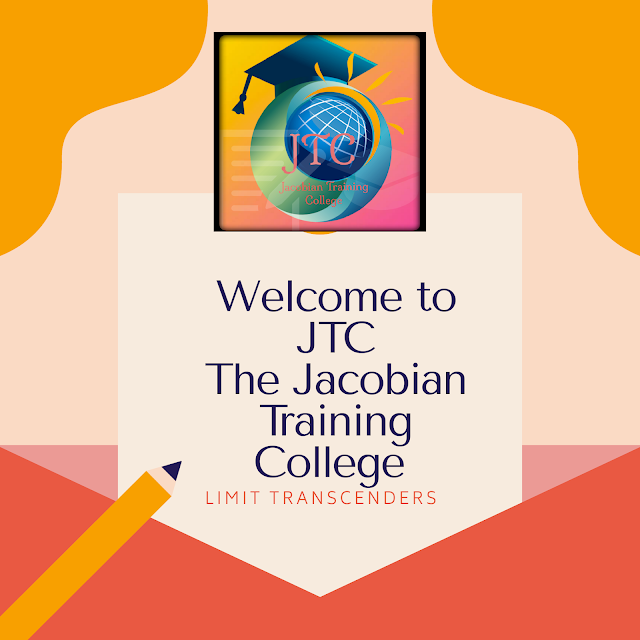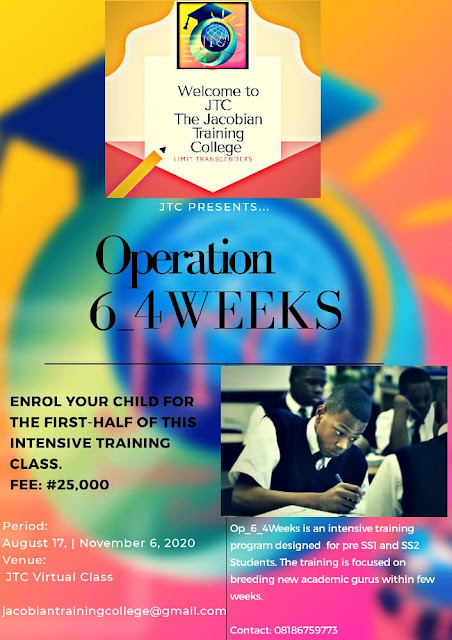WASSCE : SECRETS BEHIND PRACTICAL PAPERS FOR PHY/CHM/BIO
The practical papers for WASSCE May/June are real practical where there will be a need for you to carry out a few experiments and draw out conclusions from the result gotten by performing the experiment, unlike the GCE whereby Alternative to practical papers are considered.
The practical papers are very important as 40% of the total mark for the whole subject is from the practical papers alone. The essay and the objective questions make the remaining 60%.
The whole of the 40% mark for the practical papers is obtainable with the right information and the ability to do some things which will surely be required of you during the examination. This involves the plotting of graphs, making the valid table of values, noting the precautions to be taken etc.
Therefore, for the three science core subjects, Physics, Chemistry and Biology, three distinctions will await those who will make good use of their practical papers. The secrets of blasting your practical papers are the idea behind this article.
The practical revolves round the followings;
■Setting- up simple instruments for experiments
■Implementing the experimental procedures given
■Collection and representation of data from the experiment in a tabular form
■Making deductions and conclusions from the data obtained during the experiment
■Ability to show understanding of the theoretical knowledge behind the experiments.
Some lazy students will still consider cheating an option during their practical test but they fail to realize that for some papers, even if they have the full answer in front of them, they may still not be able to write down something tangible if they don’t know how to do basic things like procedures required in making a valid table, plotting of neat graph showing the necessary information, how to make deduction from the graphs and table of content, how to draw and label specimens neatly etc.
Therefore it is important for students to know some basic things before proceeding for their practical papers, because it is not only about questions and answers, there are key things to do like I have made mention of earlier.
We are now to look into how to approach practical papers for WASSCE for each science core subject as each subject has distinct requirements due to their scope. We will be looking into Physics practical, Chemistry practical and Biology practical independently.
PHYSICS PRACTICAL
Physics practical seems to be the easiest of all other practical papers. The key thing in the physics practical is to get the correct data from the experimental set-up by following the procedure given.
Some students do not perform the experiments at all. They only wait for their teachers to give them the experimental values.
This sometimes arises due to the inability of the students to set-up the proceedings or their understanding about scope of the experiment, it sometimes due to lack of the instruments to perform the experiment like in the case of some local private schools and public schools where the students outnumber the experimental kits and other issue like the lack of confidence in their experimental readings.
It is usually safe to use the reading given by your school teacher if his/her reading is within the valid range of values, but how can a student deduce this if he/she doesn’t understand the scope of the experiment.
That is the reason it is very important to have a sound understanding of the theoretical aspect of the experiment. For a student who understands the scope of the experiment in depth, the student will be able to obtain an accurate value for the experiment even without performing it, this helps the student to also cross-check the experimental reading and perhaps the reading given by their teacher.
Luckily for Physics practical, the questions are usually from only 3 aspects of the branches of physics. These aspects include Mechanics, Light and Electricity.
NOTE: Necessary precautions have to be taken into consideration during each experiment. There are general precautions to be taken and precautions specific for each part of the ex or riment. That is for mechanics, light and electricity, there are precautions peculiar to them.
Precautions
Mechanics
• I avoided parallax error while reading the spring balance/stop clock/meter rule/ protactor etc.
• I avoided zero error while reading the spring balance/stop clock/meter rule/ protactor etc.
• I avoided draught to minimize damping.
•I ensured that retort stand/pulley knife edge are firmly clamped.
•I avoided conical oscillations.
Light
• I avoided parallax error while reading the meter rule/ protactor etc.
• I avoided zero error while reading the meter rule/ protactor etc.
• I ensured that the pins/lens/mirror etc, are vertically erect and cleaned.
• I ensured that the pins are effectively spaced.
• I ensured neat tracing.
Electricity
• I avoided parallax error while reading the ammeter/voltmeter etc.
• I avoided zero error while reading the ammeter/voltmeter etc.
• I ensured tight connections.
• I ensured the key is opened when no reading is being taken to prevent running down the cell.
• I avoided dragging of jockey along the wire.
In recent practical papers for physics, questions also come from another aspect of physics, which is thermal physics, there is no much difference between how to approach questions on thermal physics and the other aspects mentioned earlier. Just that they are precautions peculiar to thermal physics, precautions are not to be memories but to be understood and apply during the experiment.
• I avoided parallax error while reading the thermometer/measuring cylinder etc
• I avoided zero error while reading the thermometer/measuring cylinder etc
• I stirred continually to ensure even distribution of heat
• I ensured that the heated mass is quickly and gently dropped into the beaker to prevent heat loss and splashing of water.
• I ensure the lid is quickly and tightly closed immediately after dropping the mass to prevent heat loss by convection.
Things we are to discuss in details include;
1. How to get accurate theoretical readings to cross cheque your experimental readings or given readings.
2. How to a construct a good table of values.
3. How to choose the best scale for your graph plotting.
4. How to plot your point correctly on the graph.
5.How to choose your correct line of best fit.
6. How to measure slop and intercept and other readings from your graph.
7. How to make origin shift for screwed values to ensure spreading of points.
8. How to get intercepts when if it doesn't appear on the plotted graph.
More information about the listed item above shall be treated in our subsequent posts, like and follow our post and receive more information that will be very useful for your exams.
To enjoy our services fully,
You can join our what's app group via:
https://chat.whatsapp.com/I7xsxqv2Zf14dqImRp4Nnp
Or chat with us directly on whatsapp via:
08113854241












Seen, sir
ReplyDeleteThis is really inspiring
ReplyDeleteThis is really helpful and wonderful
ReplyDeleteI would like this organization to keep it up
Wow,This is wonderful
ReplyDeleteThis is a very useful pieces for those writing the upcoming WASSCE 2020.
ReplyDeletereally inspiring
ReplyDeletereally inspiring
ReplyDeleteThanks, really helpful
ReplyDeleteThanks sir it really helpful
ReplyDeleteThank u very much sir . This is really helpful
ReplyDeleteThis will give a good insight for those writing the exam. I salute the writer
ReplyDeletePls attach your contact info so as for us to join your class
ReplyDeletePls attach it contact info for us to join the class ND I know this will be really help the upcoming wassce
ReplyDeleteFor more information, please, contact or Chat with Engr Adebakin on Whatsapp.* +234 818 675 9773
DeleteSeen sir
DeleteAnticipate futher information as regards your practical papers and other related things.
ReplyDeleteJust be in touch with us, we'll keep you updated even till the period you'll be having your exams.